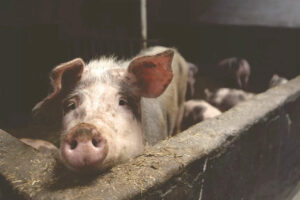THE Department of Agriculture (DA) said on Tuesday that it will begin the controlled rollout of the African Swine Fever (ASF) vaccine by the third quarter.
“The controlled rollout… prioritizes eligible commercial farms, semi-commercial enterprises and clustered backyard farms,” Agriculture Secretary Francisco P. Tiu Laurel, Jr. said in a briefing.
He added that vaccine use will initially be concentrated in red zones or those areas with active ASF cases and pink zones, or areas adjacent to zones with infections.
The DA’s Integrated National Swine Production Initiatives for Recovery and Expansion program aims to increase the population of hogs in ASF-hit areas, with activities like the construction of multiplier facilities and the use of artificial insemination.
The Food and Drug Administration (FDA) said it granted a Certificate of Product Registration for the AVAC ASF Live Vaccine from Vietnam after controlled trials.
“This is valid for two years, subject to strict monitoring and annual evaluations,” FDA Director General Samuel A. Zacate said.
Constance J. Palabrica, assistant secretary for Poultry and Swine, said that the efficacy rate of the AVAC vaccine was more than 80%, within parameters set by the FDA.
Mr. Palabrica added that the DA will continue to prioritize biosecurity measures to check the spread of ASF.
The controlled use of vaccines will be handled by the Bureau of Animal Industry (BAI) and will be made available on a voluntary bass to hog farmers.
Mr. Laurel added that “after this rollout, the BAI will evaluate the vaccine’s efficacy before endorsing it to the FDA for final approval and registration.”
He said that the DA needs about 600,000 doses of the vaccine for the hog farmers initially targeted.
“At the moment existing stock in the Philippines is only 150,000 doses,” Mr. Laurel added, with procurement of the initial batch of doses expected by August or September.
He said that the initial roll out of the vaccines will be financed by the DA, which has set aside P350 million for the exercise.
“If the vaccine is really effective, definitely it would have a big effect on our production, because people will invest again,” he added.
Hog production declined 4.3% year on year to 419,370 metric tons in the first quarter, according to the Philippine Statistics Authority.
As of July 26, 45 municipalities in 18 provinces have active cases of ASF, according to the BAI. ASF was first detected in the Philippines in 2019. — Adrian H. Halili
